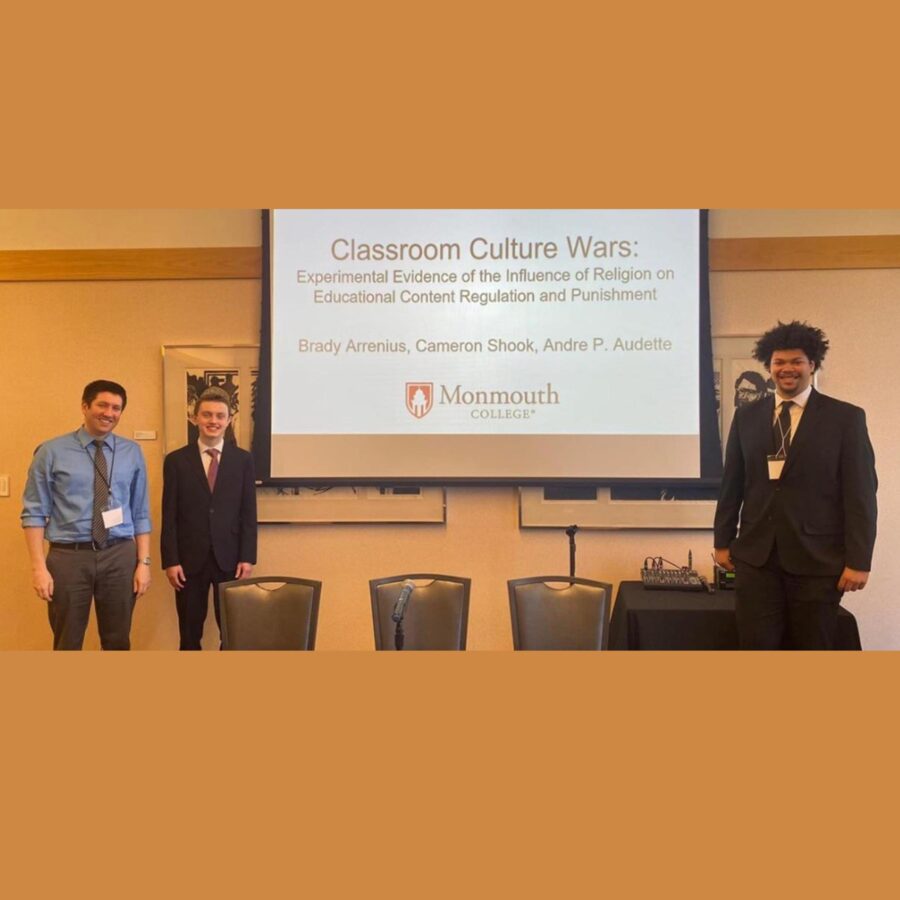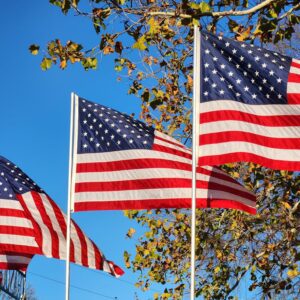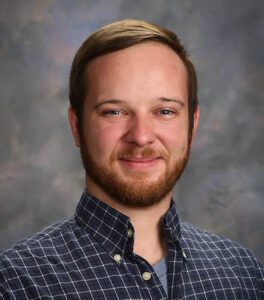A pair of Monmouth College students recently presented their political science research about the culture wars in college classrooms they have conducted.
Along with their professor, Andre Audette, Brady Arrenius ’25 of Bartlett, Illinois, and Cameron Shook ’25 of Morton, Illinois, made a presentation at the Henry Symposium on Religion and Public Life, which was held at Calvin University in Grand Rapids, Michigan.
“The main takeaway of our research is that although religiosity influences punitive attitudes toward professors who make politically uncivil comments in class, different denominations were all very similar in their punitive level,” said Arrenius.
The Monmouth trio hopes to publish their paper, “Classroom Culture Wars: Experimental Evidence of the Influence of Religion on Educational Content Regulation and Punishment,” in the near future.
“No matter if the comments by the professor were made about Democrats, Republicans or students themselves, the religious groups did not differ in their response to wanting to punish the professor,” said Shook.
Another takeaway for Arrenius was the paper’s literature review.
“We could weave different areas of literature and research into our literature review, including political science, law, religion and psychology,” he said.
The purpose of the three-day symposium is to provide opportunities to share current research, foster personal and professional networks, facilitate joint research endeavors, and learn about research opportunities in the field. Both Arrenius and Shook appreciated the opportunity to be immersed in the conference experience.
“We had the opportunity to meet the political scientists – ‘the Gang of Four’ – who established the field of religion and politics, and a variety of political scientists who presented all types of religion and politics-based research, some involving the Speaker of the House, views on military force, and attitudes toward Israel,” said Shook. “It was beneficial to engage in academic discussions with people from a variety of interests, colleges and areas around the country.”
Other than Arrenius and Shook, the conference was attended exclusively by graduate students, which made the event especially memorable.
“Being around brilliant people in academia was an intellectually stimulating experience,” said Arrenius. “Being able to network and make connections with people in my field was also a great opportunity in and of itself, and those connections will prove to be beneficial in my future in academia.”
***Courtesy of Barry McNamara, Monmouth College***
















